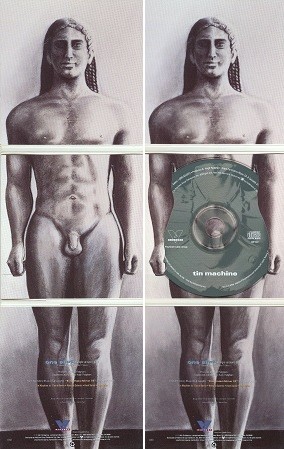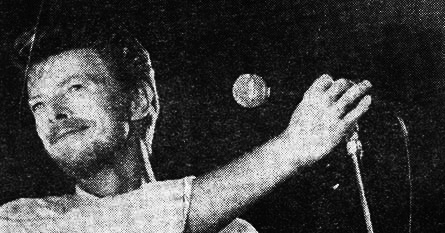
The David Bowie Community of Australia and New Zealand

 |
The David Bowie Community of Australia and New Zealand |
 |
|
||
|
|
||
David had a place in Sydney which was a lovely place to stay. The Sales brothers stayed in a hotel just off Kings Cross and a bunch of bands were staying there at the time – Bon Jovi, Charlie Sexton and the Fabulous Thunderbirds. There were lots of bands around the Kings Cross neighbourhood. The brothers came over for about two weeks and we did the basic tracks before they flew back to LA. David and I stayed for about another two months and continued working… and enjoying Sydney at the same time. U2 was here [on the Lovetown Tour with BB King] and they had to reschedule a number of Sydney shows as Bono had lost his voice. Every night they played we hung out – if not at their shows then at the hotel afterwards. I remember one night sitting there at a table of BB King, Bono and David and it was at a time when James Brown was in jail. A fair amount of alcohol had been consumed and the three of them decided to write a letter to James. I was the one whose penmanship was still intact so I was the ‘court stenographer’ – I was the one making sure that everyone’s sentiments were clearly stated and that the letter made sense! So was David Bowie a good Sydney flatmate? Yes, says his houseguest, save for the occasional theft of undergarments. “One morning as the sun was coming up I wake up to a shadowy figure in my room and I see that it’s David. He’s got the dresser open and he’s going through the drawer where my underpants and socks were. He pulls a pair of socks out and says, ‘All of my socks are dirty’ and then just leaves the room with them! We had that kind of relationship. On a Sunday afternoon, we’d maybe have a bottle of wine and then he’d put on Little Richard. He’d say that all he ever really wanted to be was Little Richard’s saxophone player. We would listen to Little Richard’s greatest hits and in my memory, he played all the saxophone solos note for note. When I first met him [on the Glass Spider Tour in 1987] I had always lived in band houses – you’d rent a place with six other musician guys where you could rehearse. David just reminded me of someone who could have been one of those guys, except for the fact he had been a rock star for 25 years… As showcased on Tin Machine’s output - as well as ‘90s Bowie/Gabrels collaborations such as “I’m Afraid Of Americans”, “Little Wonder” and “The Hearts Filthy Lesson” - Gabrels has shown a professorial commitment to pushing his guitar sounds in new directions.
|
 |
|
|
||||||||||
|
||||||||||
|
|||
|
|
||||||
|
||||||
|
||
 |
In a turn around from mere recording, Tin Machine burst on to the local Sydney pub scene with an impromptu appearance.
|
|
|